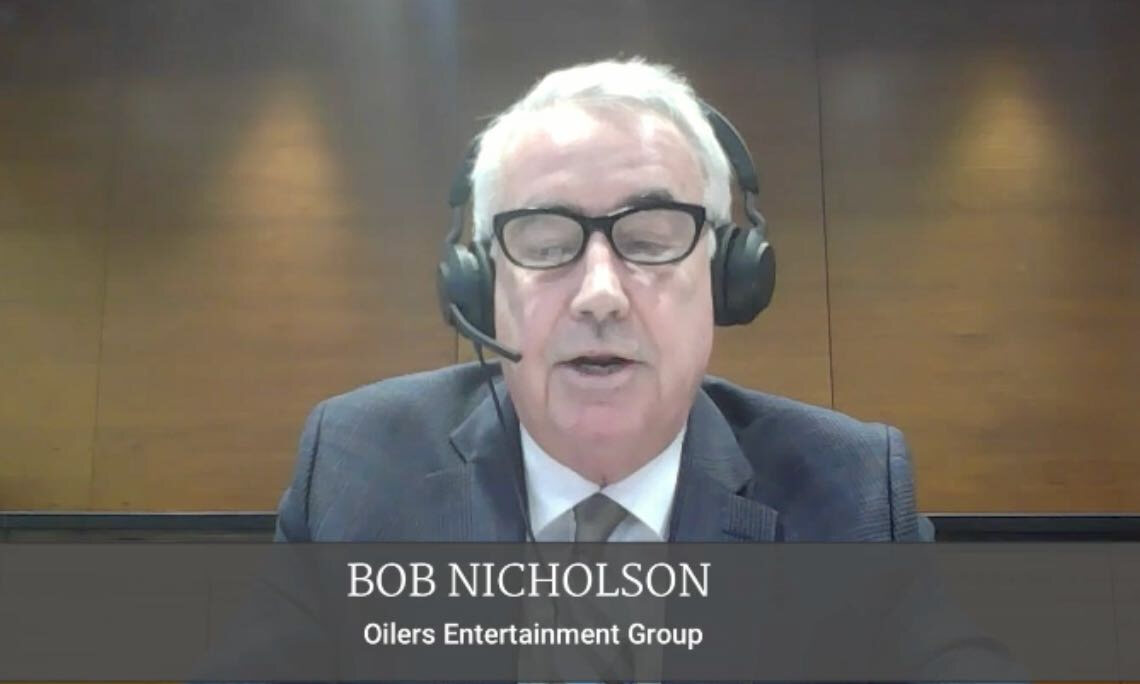I Could Have Saved Hockey Canada $1.6 Million
There wasn't a ton of coverage in the media of the latest House of Commons Committee smackdown of Hockey Canada. That's ok though, because most reports buried the lede anyway.
Hockey Canada should have asked me. I could have saved it almost $1.6 million and told Hockey Canada exactly what to do.
$1.6 Million?
Last week I was glued to my desktop screen when Edmonton Oilers Chairman Bob Nicholson and Hockey Canada Senior VP Paul McLaughlin appeared before the House of Commons Canadian Heritage Committee. The federal government committee has been hammering Hockey Canada execs and former execs for the past few months, as it tries to get answers about the organization’s scandals.
While much has been made of what Nicholson and McLaughlin said, there was one piece of information that stood out to me like a sore thumb. When McLaughlin was asked how much Hockey Canada has paid Navigator, the crisis communication firm it hired in July, his reply was $1.6 million.
$1.6 million for four months of work? Really? That’s nice work if you can get it.
Unfortunately, I don’t think any committee member asked McLaughlin what Navigator did to earn that $1.6 million, as it worked to defend the brand of the once-proud organization under Nicholson.
We have to assume it’s doing what crisis communications firms do, which is to provide research, strategic advice, get leaders prepared to face questions from the government, media and others and anything else required to get Hockey Canada out of the jam it’s in.
If You Would Have Asked Me
I’ve been hired to work with organizations and politicians in crisis situations in the past, but nothing like the scale of the Hockey Canada fiasco.
Although I don’t pretend t have the chops of Navigator, IF I would have been asked months ago what Hockey Canada should have done, I would have advised it that three things needed to be done immediately.
- Hockey Canada needed to humbly apologize for using slush funds to cover up terrible behaviour and vow to do better
- Several Hockey Canada staff and Board members needed to resign
- Immediately develop a plan to change the culture and start showing results
In plain language, when you have a developing crisis on your hands, you must consider what would happen if things get really bad. Every action you take draws a reaction and when you mess up, media coverage gets worse, the public feeds off that and so does the government. It’s the snowball running downhill effect.
The “what’s the worst that can happen here” question needs to be asked continually. If it’s possible a nuclear meltdown could occur, then you need to do everything to prevent that.
That’s exactly what's happened. Hockey Canada needed to take steps to avoid a total meltdown. It gambled (and lost) that taking these steps right away wasn’t necessary. Resignations and accountability came far too late.
The meltdown included the Hockey Canada brand being so awful that sponsors walked away. Why wasn’t that door closed early? Quick and dramatic action on the part of Hockey Canada likely would have prevented a meltdown.
The appearances of Hockey Canada before the Heritage Committee ranged from giving elusive and non-complete answers and information, to being downright confrontational. Remember when former Interim Board Chair Andrea Skinner wondered whether the lights would stay on in hockey rinks across the country if some suits from the Board of Directors were forced to resign?
Navigating a Disaster
Getting back to Navigator, we likely will never find out what advice it gave to Hockey Canada and what advice was rejected by Hockey Canada’s management and Board.
It’s too simple to say that because Hockey Canada’s PR efforts have been lacking, it must be because it got bad advice from Navigator.
What happens far too often in these situations is a failing organization can get really good advice, but it doesn’t like what it hears, so it does what it wants.
Perhaps the best example of this is the powerful soccer organization FIFA. There’s a excellent documentary on Netflix called FIFA Uncovered. One of the more interesting parts of the doc came when FIFA hired a highly regarded governance expert to advise on how its governance model should be changed to offer greater transparency and accountability. It did nothing with the recommendations. They were totally ignored and life went on. Several millions of dollars in bribes later and now the World Cup being played in Qatar.
I was recently on The Reputation Town Podcast and when we were asked why situations like Hockey Canada happen, communications expert Molly McPherson put it best when she said “Lawyers, shareholders and ego.” She was bang on.
As soon as the story broke about the 2018 sexual assault involving Hockey Canada players and the interest from the government in getting to the bottom of it, I knew this would be a huge story. Once the government got its hooks into Hockey Canada it was game over.
Maybe if Hockey Canada had hired me, it would have saved almost $1.6 million and still had $24 million in sponsorships?
I doubt its decision makers would have listened though.
Hockey Canada got a wake-up call on sexual abuse in 1996 when Graham James was convicted of sexual assault. Nicholson, Smith, Robison et Al were all there. But, as minister Pascale St-Onge has noted, they thought they had an insurance problem, not a problem with a rotten culture. Keep in mind, most of the payouts from their slush funds were to cover law suits related to the James fiasco. These badgers don’t have a p.r. problem, they’re shockingly unclear on the concept of fostering a healthy sports culture. It is disgraceful.


Commentary